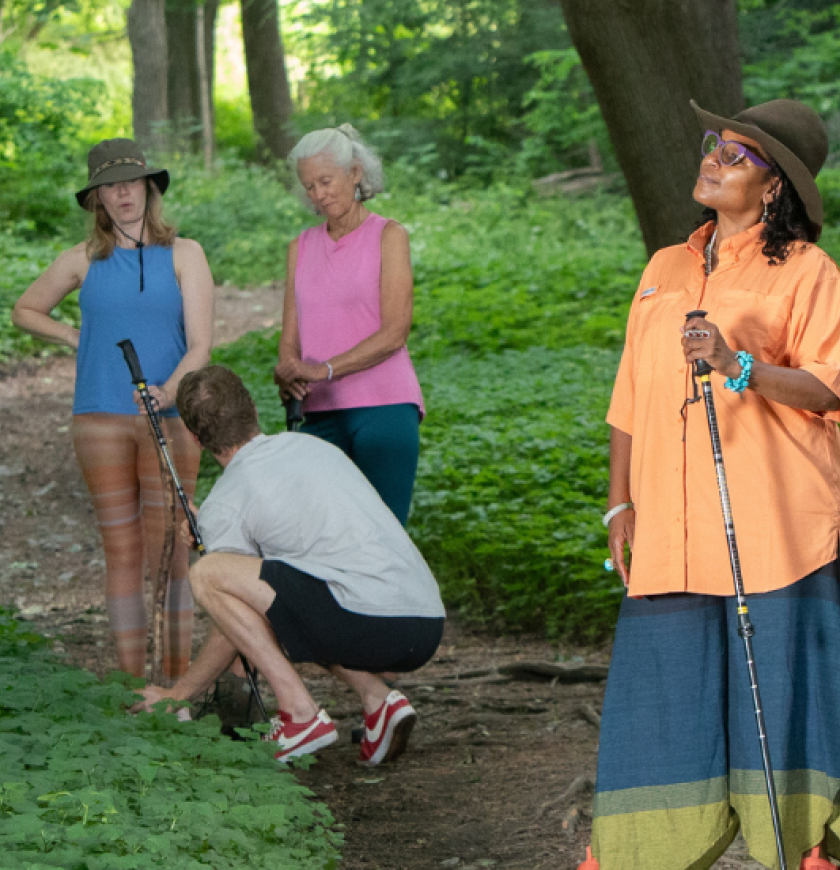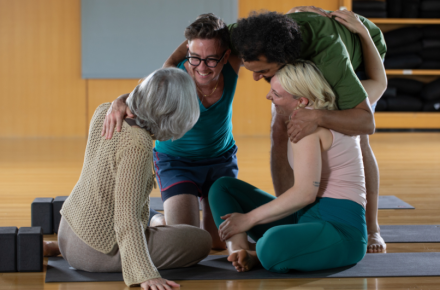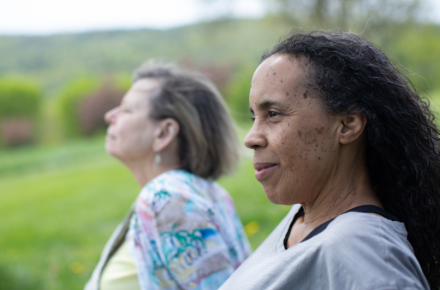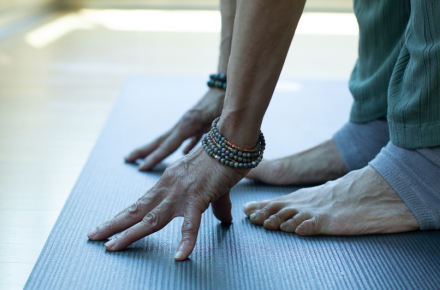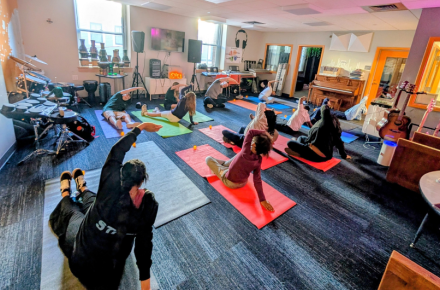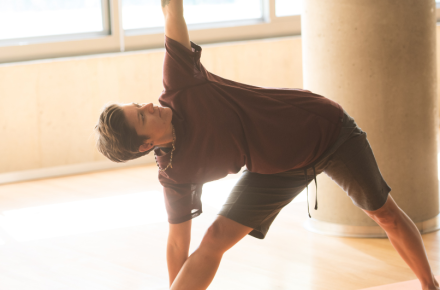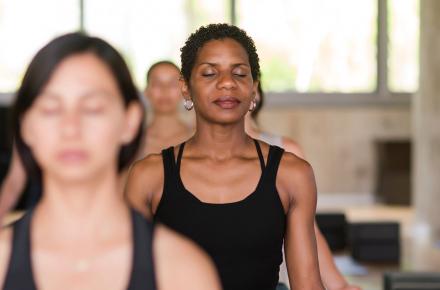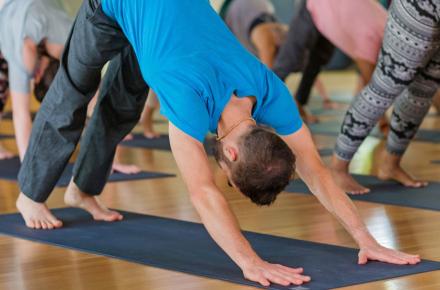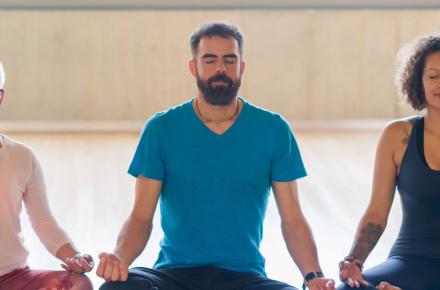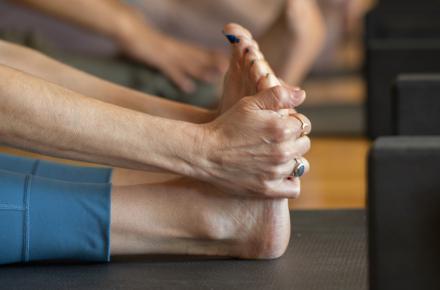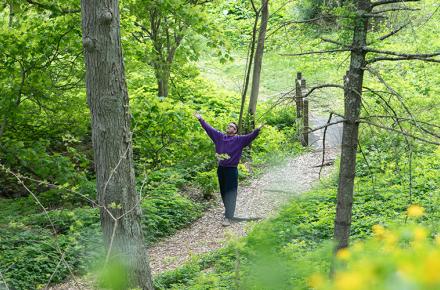What’s Your Superpower at Work?

by Reyna Eisenstark
If you were asked to make a list of your strengths, how would you begin?
We did this exercise during Using RISE for Resilience at Work, Kripalu’s evidence-based program for stress resilience. According to positive psychology, strengths are the qualities we already have that can help us in stressful situations, both at work and in our everyday lives. Being organized or creative or patient or whatever else your strengths might be—when you’re feeling overwhelmed or burned out, just think about how useful it would be to turn to them.
So, for about 10 minutes, I made a list of all my strengths. I filled up one side of a page, turned it over, and filled up a second side. I looked around and saw everyone else scribbling. Somehow this was easier than I’d thought it might be. When the 10 minutes were over, I had listed dozens of strengths.
After making our lists, we were asked to turn to a partner and share one of our strengths. I talked about how being organized was practically my favorite thing about myself. Writing is a talent, I pointed out, but it’s also a skill that gets better with practice, and the more organized I’ve learned to be, the better writer I’ve become. Over and over, I’ve taken pages of notes and, after lots of cutting and pasting, I’ve organized my scattered thoughts into something coherent and readable. To me, being organized has always felt like a secret superpower, and funny enough, just talking about this strength with someone else was a thrill.
I was not alone. We all seemed to be giddy, sharing our superpowers with each other and realizing that we all had quite a few.
The Three Cs
Identifying your strengths is one aspect of the “three Cs,” which forms the core of the RISE program. First, there is calm: breathing and relaxing. If you practice yoga regularly, as I do, this one is a no-brainer. My body has gotten stronger and more flexible from yoga, but it is the breathing that has changed my life.
The second C is clarity: paying attention, feeling your sensations, and watching your thoughts. Simply put: mindfulness. One early morning during the program, I looked out my window and noticed a woman standing outside, holding a thermos of coffee. It had snowed the night before, and she stood in the cold, perfectly still, holding her coffee and looking out at the view. That was all she was doing—paying attention, being completely in the moment. I watched her for several minutes, and I felt incredibly peaceful. It was an image I returned to a number of times over the next few days.
The third C was a surprise for me. It stands for connection, and includes things like identifying your strengths, listing things you are grateful for, and sending well wishes to yourself and to others. This seems like a final piece in the puzzle that is resilience. You can have a calm body and a clear mind, but if you don’t feel connected to yourself and to others, you will still be missing something.
Activating Your Superpowers at Work
The third C, connection, made more sense to me a week or two after the program, when I did something unexpected. I work at an office job part-time, and I have a hard time with one of my colleagues. We don’t usually interact, but she is loud and bossy and often condescending to the people in her department.
One afternoon, she had to give a speech for a woman who was retiring. I was surprised to see how visibly nervous she was at the podium, her voice shaking as she spoke. At that moment, I recognized that she was just a person like me, going through something that was difficult for her. When she passed me later, I said, without even thinking about it beforehand, “Hey, that was a great speech you gave earlier!” I could see the initial shock and then the relief flooding her face. “Thanks,” she replied, clearly grateful. “I’m glad you liked it!”
I had offered a woman I didn’t particularly like some simple words of kindness, which surprised and delighted us both. It made me realize that becoming resilient encourages you to tap into your obvious strengths, but also to pay attention to other strengths. My organizational skills would not have been of any use here. Some simple empathy was what the situation called for. I would need to add this strength to my list.
Reyna Eisenstark is a freelance writer living in Chatham, New York. More about the author: reynaeisenstark.wordpress.com

